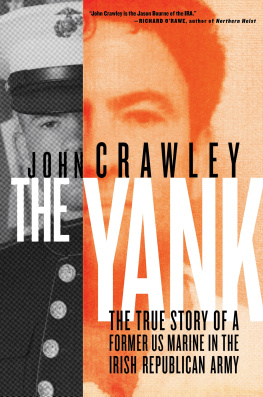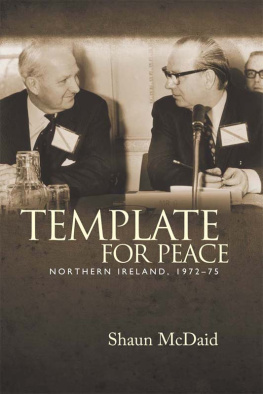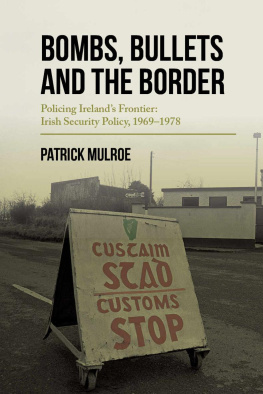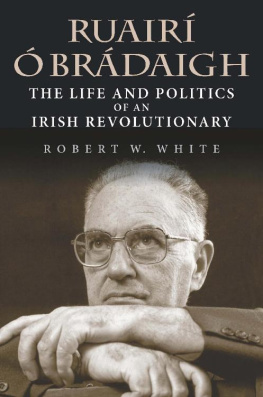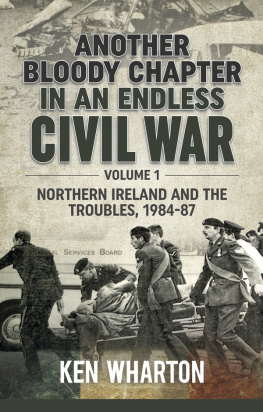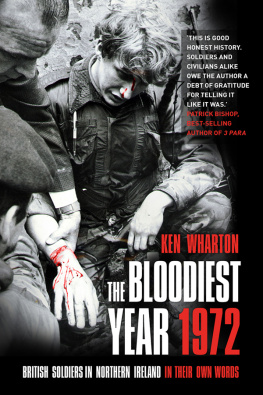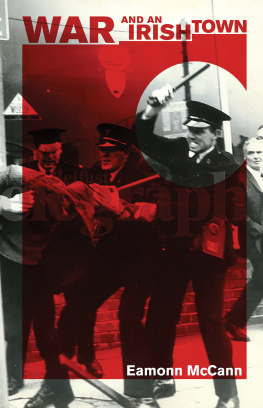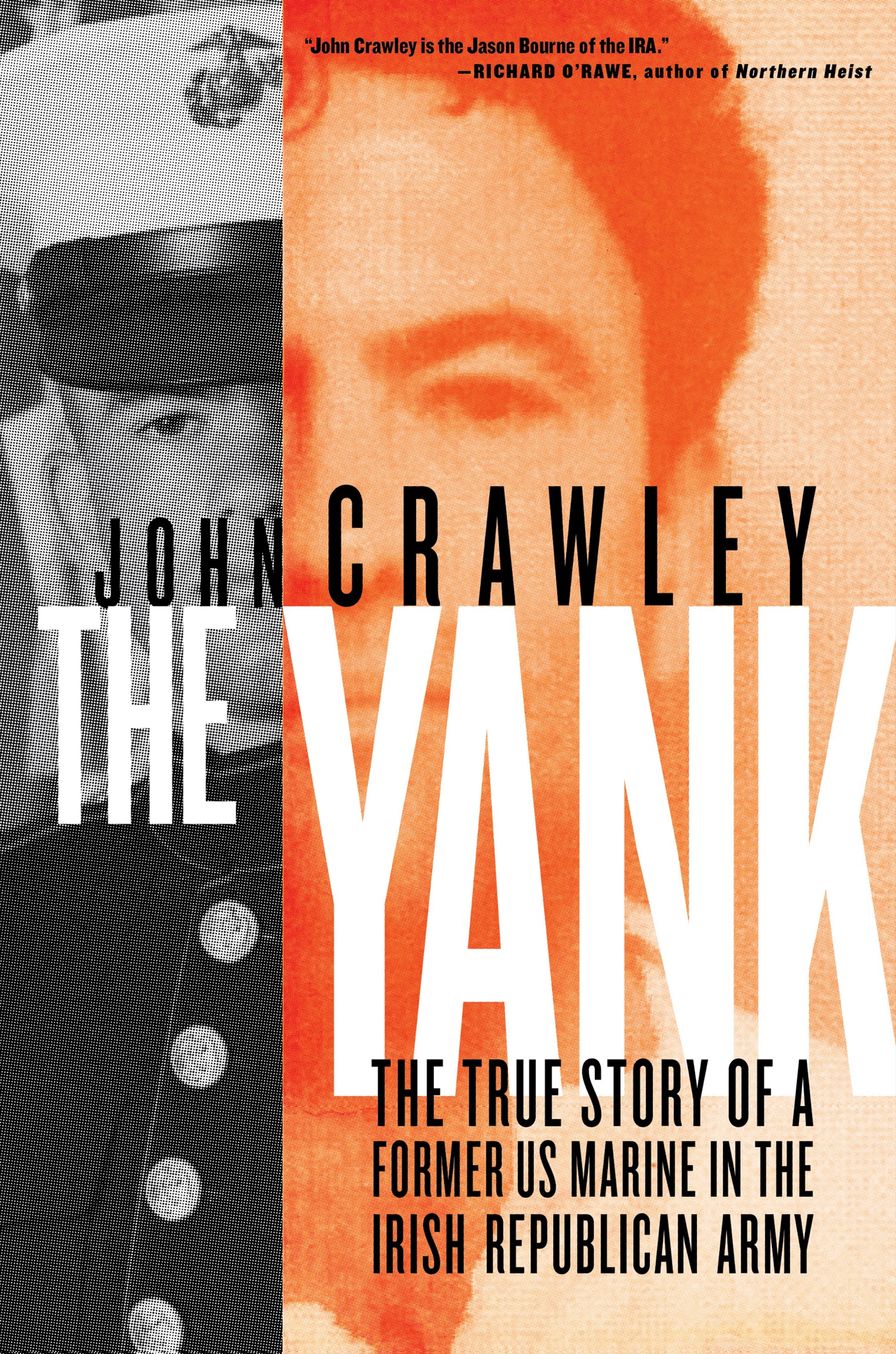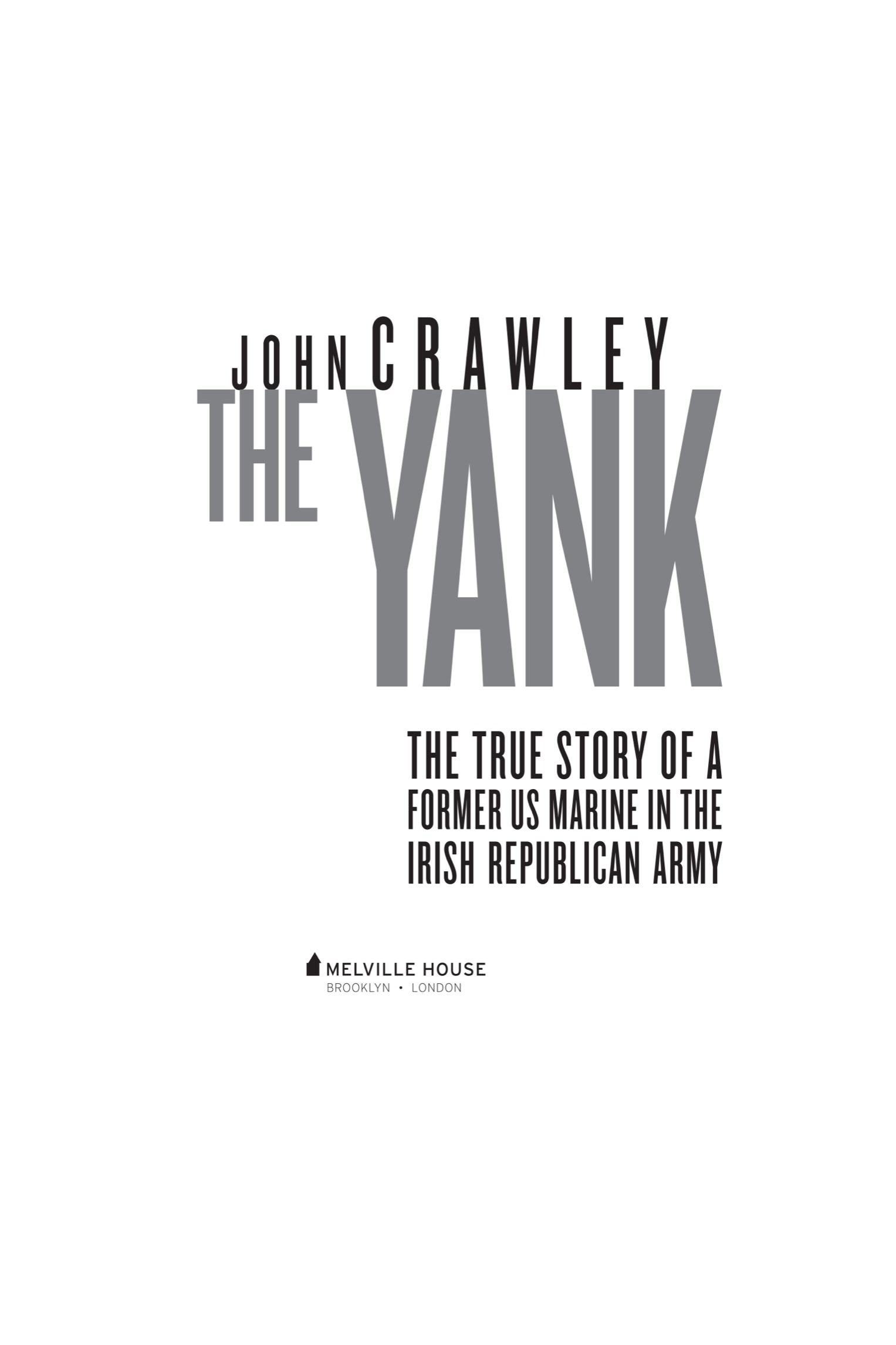never abandon it.
PROLOGUE
I MOVED TO the bow of the Valhalla and inhaled a deep breath of sea air. The weather was mild with no rain and good visibility. Shore lights shimmered on the dark water and there was a gentle swell, but it wasnt bad. I had been on boats a lot during my time in the Marine Corps but never on a shrimping trawler trying to smuggle seven tons of weapons and ammunition across the wide Atlantic in hurricane season.
An initial taste of what might lie ahead occurred when we left the harbour mouth and ploughed into the first of the wild Atlantic swells. They were moderate, but the boat shuddered like a car going too fast over a speed bump. I braced myself and stood for a while longer at the bow. The lights from the American east coast receded behind us as the ocean before us grew blacker. In fourteen days or so, if everything went to plan, we would land the weapons and ammunition in Ireland.
I had left Ireland some months earlier with 9,000 pounds and instructions to build an arms network from scratch. I was returning with a quarter of a million dollars-worth of equipment and a boat and crew prepared to take it all the way. I had also acquired contacts and resources that would prove invaluable in the future.
The first few days at sea were routine and uneventful, but then we lost our autopilot. With the autopilot functioning, the steering wheel in the pilothouse could be set to a specific heading and maintain it despite strong winds and currents but, with it out of action, someone had to be at the wheel at all times to keep us on course. It was mainly Bob Anderson, John McIntyre and myself who took turns, in four-hour shifts.
About halfway across the ocean, we had a day when the sea was like glass. I never saw calmer water, not even on a fishing pond. The wake from the Valhalla caused the only ripple in the utter tranquillity of the benign Atlantic. I had no idea I was experiencing the proverbial calm before the storm.
That night the winds began to build and the sea churned. Bob grew concerned. He told me that a hurricane hed been monitoring in the Bahamas was coming up the Gulf Stream and heading in our direction. Shortly afterwards, all hell broke loose.
The Valhalla wasnt designed for the battering it was about to receive. Enormous waves, forty to fifty feet high, dwarfed the boat, while ferocious winds, driving rain and crashing seas swept the deck. The boat reeled violently from side to side, its stabilising outriggers almost touching the surface with each roll. Walls of cold, dark water made endless attempts to swamp us.
Then, an enormous wave landed an almost knockout blow to the boat. There was the sound of a massive crash and I was thrown forward violently. It felt like a car collision. I stumbled from my berth to a chilling sight. Four of Valhallas seven tempered glass windows had been blown in. Bob was on his knees with blood gushing from a head wound caused by broken glass. He was trying desperately to hold on to the wheel while John rendered him assistance. Water had poured into the pilothouse and down into the forward engine room, causing a short circuit and starting a fire. Smoke poured up from the engine room where the guns and ammunition were stored. Seawater sloshed around my ankles. I knew at that moment we were doomed.
Blood was everywhere, but to my immense relief Bob was lucid and able to function. John did his best to clean and dress Bobs wounds while I took the wheel, trying to steer us into the waves so we didnt get broadsided.
There was so much damage to the boat and the storm was so fierce and persistent, I could not conceive of us evading catastrophe for much longer. I asked Bob if we should put on the survival suits we had brought along.
Theres no point! he gasped painfully. Were in the middle of the ocean. We have no communications. Nobody knows were here. Go ahead and put it on if you want to, but itll take you eight hours longer to die. None of us put them on.
1
RECON
PAIN IS BEAUTIFUL and extreme pain is extremely beautiful. I was beginning to have my doubts about that. The US Marine sergeant, who assured us of this fact, sprinted effortlessly beside us. A dozen young Marines, who had just landed in Okinawa and volunteered for Recon training, were trying desperately to keep up with this loping gazelle of a man as he darted down narrow dirt tracks that took us over hill after hill after excruciating hill. Several recruits had already quit or collapsed in a pool of vomit. Despite three months of hard conditioning at boot camp and another month of hauling ass at Advanced Infantry Training at Camp Pendleton, California, this physical training was off the charts.
Hours earlier, I had stepped off a plane at Kadena Air Base outside Okinawa after a twenty-four-hour flight from California via Alaska and Tokyo. It wasnt supposed to be this way. I wasnt supposed to be in the Marines. I wanted to be a Green Beret like my cousin Ken Crawley, who had spent seven years in that outfit. When I signed up at a US Army recruiting station in Chicago, the contract certified that, after basic training, I would be given an opportunity to attend Jump School, Ranger School and the Special Forces Qualification Course or Q-Course. There was no guarantee I would make it through this training, of course. Most didnt. But they would permit me to try. However, while I had obtained the guarantee for assignment to Airborne, Ranger and Special Forces schools at the recruiting station, I had not yet signed the final enlistment papers when fate intervened.
I had originally flown to America in April 1975 from Ireland, where I had been living for the four previous years. I would turn eighteen in May and could then enlist in the military. After a stint with the Green Berets, I planned to return home and join the Irish Republican Army (IRA). No one sent me or encouraged me in this endeavour. I thought that one up all by myself.

